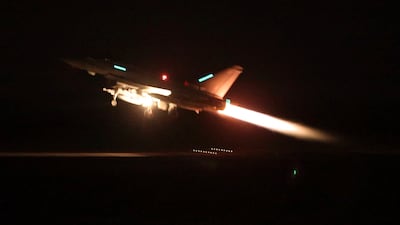Tesla has announced a suspension of most car production at its factory near Berlin for two weeks from the end of this month, due to a squeeze on component supplies as ships avoid the Red Sea and come to Europe via the Cape of Good Hope, adding up to 10 days to transit time.
"The armed conflicts in the Red Sea and the associated shifts in transport routes between Europe and Asia via the Cape of Good Hope are also having an impact on production in Gruenheide," Tesla said in a statement.
Other companies, including China's second largest car maker Geely and the Swedish home furnishing giant Ikea have warned of possible disruption to manufacturing.
"Relying on so many key components from Asia, and specifically China, has been a potential weak spot in any automaker’s supply chain," said Sam Fiorani, vice president at AutoForecast Solutions.
"Tesla relies heavily on China for battery components, which need to be transported to Europe through the Red Sea, putting production constantly at risk."

More transit time, more cost
The escalating conflict in the Red Sea has reignited inflationary fears and concerns over supply chains as shipping companies opt for expensive rerouting options, rather than passing through the conflict zone.
Shipping giants Hapag-Lloyd and Maersk have been rerouting their vessels round the southern tip of Africa for the past two weeks, a process that not only adds extra days at sea, but also costs an estimated extra $1 million per ship.

"At least 20 per cent of global shipping is being disrupted by long journey times and port congestion," said Susannah Streeter, head of money and markets at Hargreaves Lansdown.
"The risk is that supply chains are tightening up around the globe, increasing the risk of bottlenecks, which could once again fuel inflation."
UK grocery giant Tesco this week announced prices in its shops could rise, given increased shipping costs. The supermarket chain stressed it was not a foregone conclusion that the extra costs would be passed on to consumers, as the situation remains uncertain.
Meanwhile, clothing chain Next and footwear company Crocs have also warned of delays to deliveries.
Inflation fears
Meanwhile, broader inflationary concerns were raised as oil prices rose 2 per cent on Friday, following the air and sea strikes on Houthi military targets in Yemen carried out by US and British forces in response to attacks by the Iran-backed group on shipping in the Red Sea.
Oil prices have risen by about 7 per cent since early December, before Houthi rebels started their attacks on ships passing through Bab Al Mandeb.
The events in the Red Sea added to market concerns over the potential for a broader conflict in the Middle East and the effect that might have on oil supplies from the region, especially those passing through the crucial Strait of Hormuz.
"If a large part of Strait of Hormuz flows were to be halted, it would present up to three times the impact of the 1970s oil price shocks and over double the impact of the Ukraine war on gas markets, atop already fragile supply chains and stock levels," said Saul Kavonic, an energy analyst at MST Marquee.


